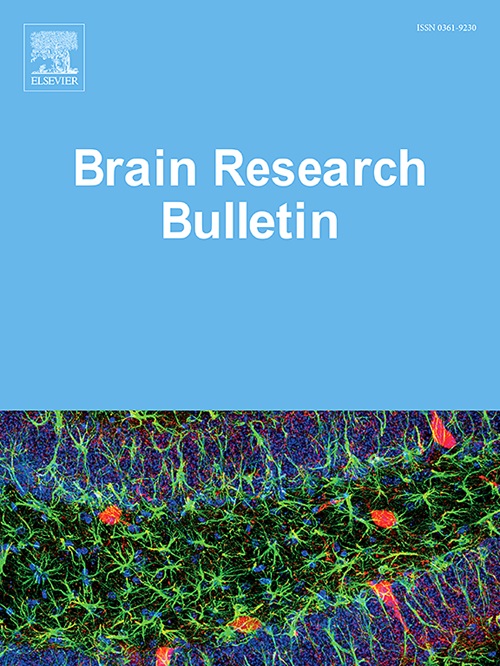MicroRNA-155 modulates methotrexate-induced spatial memory impairment by disruption of the blood-brain barrier integrity
IF 3.5
3区 医学
Q2 NEUROSCIENCES
引用次数: 0
Abstract
Aim
Methotrexate (MTX) is a commonly used chemotherapy drug, yet its late neurotoxic side effects are gaining attention. The aim of the study was to evaluate the role of miR-155 in the pathogenesis of MTX-induced cognitive impairment, mainly focused on the interplay of blood-brain barrier (BBB) integrity and MTX toxicity.
Main methods
We use young rat model mimicking children leukemia treatment protocol, focusing on the systemic MTX effect on the central nervous system by intraperitoneal (IP) MTX injection. The cognitive function was evaluated by Morris Water Maze test and the BBB integrity was accessed by cortex permeability test. Tight junction proteins expression were also examined. Finally, we tested whether anti-miR155 pretreatment can reversed the MTX effect.
Key findings
We found increased plasma miR-155 expression at 24 hr after IP MTX treatment. Besides, IP MTX resulted in impaired learning acquisition, which can be reversed by anti-miR155 treatment. Furthermore, brain cortex permeability and tight junction proteins were changed by IP MTX. miR-155 revealed its protective role in the current study for the development of MTX-induced cognitive impairment.
Significance
IP MTX can induce significant cognitive impairment, which is related to the disruption of BBB integrity. miR-155 plays a vital role in the regulation of MTX-induced cognitive impairment, mainly through the maintenance of BBB integrity.
求助全文
约1分钟内获得全文
求助全文
来源期刊

Brain Research Bulletin
医学-神经科学
CiteScore
6.90
自引率
2.60%
发文量
253
审稿时长
67 days
期刊介绍:
The Brain Research Bulletin (BRB) aims to publish novel work that advances our knowledge of molecular and cellular mechanisms that underlie neural network properties associated with behavior, cognition and other brain functions during neurodevelopment and in the adult. Although clinical research is out of the Journal''s scope, the BRB also aims to publish translation research that provides insight into biological mechanisms and processes associated with neurodegeneration mechanisms, neurological diseases and neuropsychiatric disorders. The Journal is especially interested in research using novel methodologies, such as optogenetics, multielectrode array recordings and life imaging in wild-type and genetically-modified animal models, with the goal to advance our understanding of how neurons, glia and networks function in vivo.
 求助内容:
求助内容: 应助结果提醒方式:
应助结果提醒方式:


